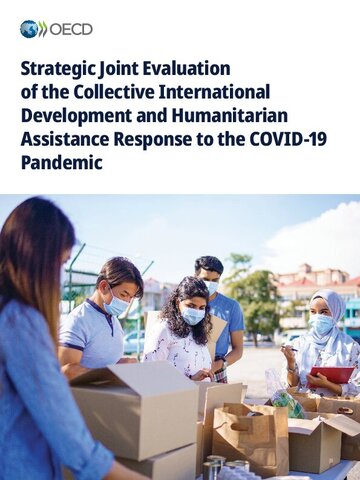
This flagship evaluation report is the result of a unique, five-year, global collaboration across more than 60 evaluation units and includes findings from a synthesis of evaluations, as well as 16 country and provider case studies. This Strategic Joint Evaluation examines how international development and humanitarian actors collectively responded to the COVID-19 pandemic between 2020 and 2022, assessing the relevance, coherence, effectiveness, and efficiency of the global response.
While the pandemic placed immense strain on global systems, it also catalyzed unprecedented levels of cooperation, innovation, and resource mobilization. The evaluation underscores the critical importance of flexibility, local leadership, and timely support, while also identifying areas where incoherence and missed opportunities hindered collective effects. In relation to WFP, the evaluation highlights its operational role in delivering food assistance, providing air logistics, and supporting national social protection and school feeding programmes. It also underscores the need for more flexible financing, enhanced innovation, and stronger coordination mechanisms.
Key themes include:
- How resources were channeled to countries in need
- Coherence and efficiency of global efforts
- Lessons to strengthen future cooperation
Offering a rare system-wide perspective, this report captures essential lessons to strengthen future responses to global crises. It serves as a valuable resource for policymakers, development professionals, humanitarian actors, and anyone seeking to understand how the international community can respond more effectively in times of emergency.
| Document | File |
|---|---|
| Evaluation brief |
PDF | 322.84 KB
Download
|
